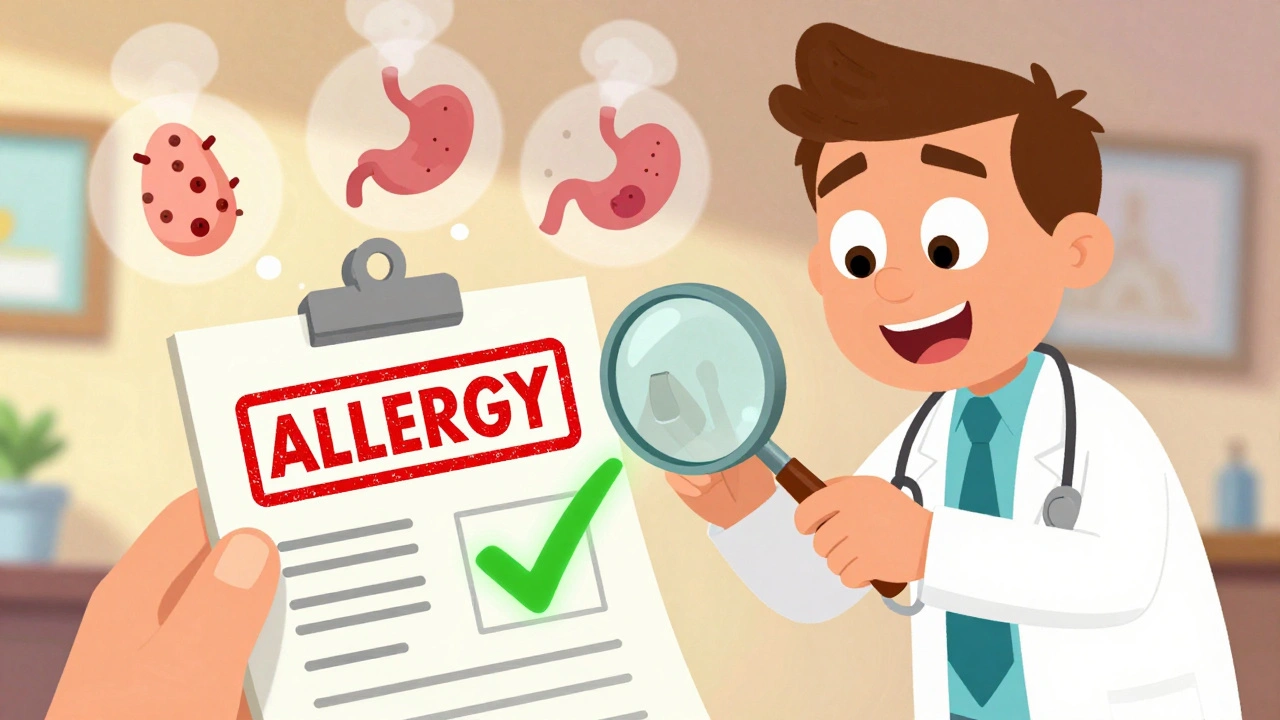Penicillin Allergy: What It Is and Why It Matters
Ever wondered why a simple antibiotic can turn into a serious problem for some people? That’s a penicillin allergy. It’s an immune‑system overreaction that can happen after a single dose or years of use. The body mistakes penicillin for a threat, releases chemicals like histamine, and you get symptoms ranging from a mild rash to life‑threatening trouble breathing.
Spotting the Symptoms Early
First sign? A red, itchy rash that shows up a few minutes to a few days after you take the medicine. Some folks get hives, swelling of the face or lips, or a prickly feeling on the skin. If the reaction spreads to the throat, causing tightness or wheezing, that’s an emergency – call 911 right away. Diarrhea, fever, or joint pain can also pop up, but they’re less common.
It’s easy to miss a mild reaction and think it’s just a harmless side effect. The trick is to pay attention to any new skin changes or breathing issues after you start a penicillin‑based drug.
Safe Alternatives and Next Steps
Got a confirmed penicillin allergy? Your doctor can prescribe alternatives like cephalosporins (if you’re not cross‑reactive), macrolides (azithromycin, clarithromycin), or fluoroquinolones. Each class works differently, so it’s crucial to discuss your medical history and any other drug sensitivities.
If you suspect an allergy but haven’t been tested, ask for an allergy test. Skin prick or blood tests can pinpoint the exact trigger. Until you have results, keep a written record of every reaction – date, drug name, dose, and symptoms. Share that list with any new healthcare provider.
When you need antibiotics for a serious infection, don’t skip treatment because you’re scared. Talk to your pharmacist about “penicillin‑free” options, and always carry an allergy card or bracelet. If you ever get a sudden rash or breathing trouble, an antihistamine like diphenhydramine can help, but it’s not a substitute for professional care.
Bottom line: knowing the signs, getting tested, and having a backup plan can keep a penicillin allergy from becoming a scary surprise. Stay alert, keep your records straight, and work with your doctor to find the safest medicines for you.
Most people labeled as penicillin-allergic aren't truly allergic. Learn how to confirm your allergy, avoid unsafe alternatives, and get the right treatment with proper testing and documentation.
View more
Doctors sometimes avoid Augmentin for allergies or resistance. Learn when it happens, which antibiotics they pick instead, and how each option works best.
View more

